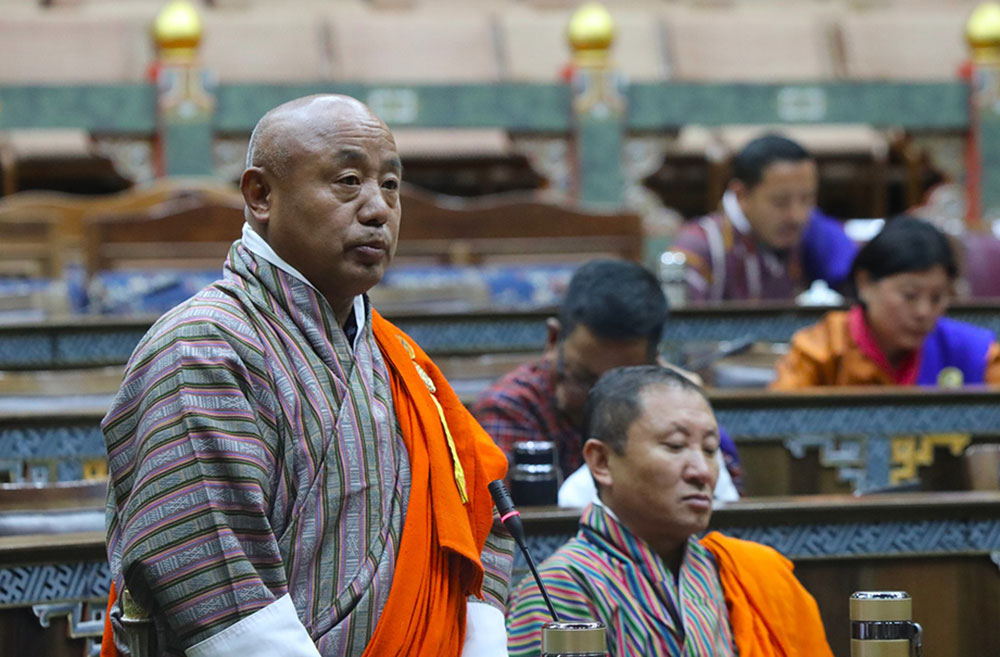Dechen Dolkar
During the annual budget deliberations for the fiscal year 2023-24, the National Assembly (NA) made the decision to conduct a thorough review of four state-owned enterprises (SOEs). The Economic and Finance Committee of the NA recommended immediate closure of Bhutan Livestock Development Corporation Limited (BLDC), Farm Machinery Center (FMC), Food Corporation of Bhutan (FCB), and Kuensel Corporation, stating that their mandates could be fulfilled by the private sector.
Chairperson of the committee, Kinga Penjor, emphasised the need for immediate closure, citing competition with private sectors as the primary reason.
He suggested that BLDC focus on primary productions such as piglets or chicks instead. Regarding FMC, he proposed that the importation of agricultural machinery be carried out by private sectors, urging the organisation to consider manufacturing the machinery within the country.
Furthermore, he suggested that private wholesalers take charge of importing and stocking food items, similar to the functions of FCBL. He also recommended that the government surrender 51 percent of shares to Kuensel, allowing them to operate independently.
Minister for Agriculture and Livestock, Yeshey Penjor, defended FCBL’s mandate, stating that it aims to ensure a sufficient supply of essential food items during crises like the Covid-19 pandemic. He also highlighted the organization’s role in facilitating the export of agricultural products when farmers face challenges in selling their produce.
Regarding FMC, the minister explained that the organisation is involved in the fabrication and provision of agricultural machines at subsidized rates for farmers, as well as engaging in commercial farming. As for BLDC, Lyonpo mentioned its production of primary products supplied to farmers to reduce reliance on imported meat items.
MP Passang Dorji (PhD) from the Bartsham-Shonphu constituency suggested that the government consider privatising some SOEs given their substantial debt of Nu 40.7 billion. He emphasised the need for a strong economy to foster the growth of the private sector, as the current GDP contribution stands below 40 percent. He said that with a thriving economy, the private sector’s GDP contribution should exceed 60 percent.
MP Ugyen Wangdi of Dramedtse-Ngatshang expressed concern over the increased subsidy for CSI Bank in the FY 2023-24 budget. He questioned the necessity of the subsidy, as the bank no longer has active loans.
Finance Minister Namgay Tshering clarified that the subsidy was allocated for community centers providing G2C services and not for the salaries of CSI Bank employees.
Minister further addressed the issue of debt, highlighting that the Nu 41.7 billion debt lies with DHI companies, primarily Bhutan Power Corporation for rural electrification from JICA, and Drukair for the purchase of ATR and Airbus. He reassured that these debts would be repaid by the companies through their services and profits. The minister also acknowledged the social mandates of certain SOEs, stating that they perform tasks that are crucial and cannot be fulfilled by the private sector.
As a pilot project, the ministry is exploring the possibility of floating 30 to 40 percent of BLDC shares to the public for business diversification.
However, Opposition Leader Dorji Wangdi urged caution, emphasising the need to classify SOEs as strategic or non-strategic before making immediate decisions about closures.
With SOEs holding approximately Nu 8 billion worth of assets, the National Assembly decided to further review the four recommended for closure by the committee and requested a report on the matter within one month.
The House also endorsed the committee’s recommendations and the budget appropriation Bill for FY 2023-24, amounting to Nu 85.52 billion.


